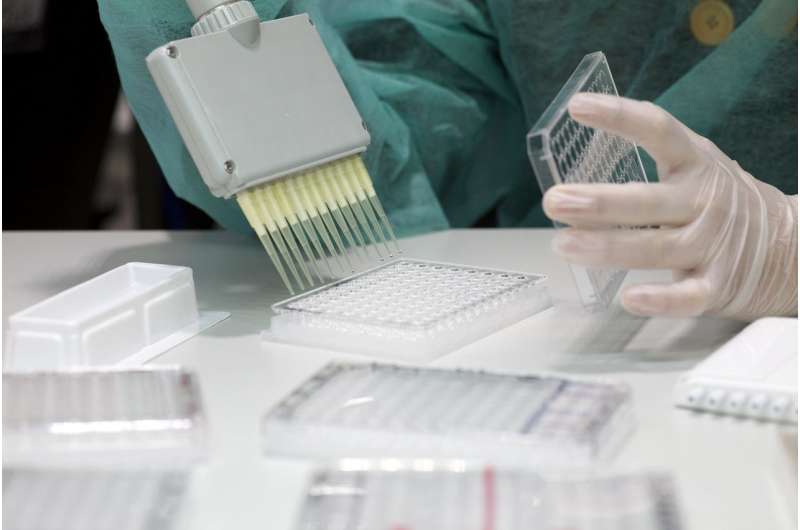A promising new tool to measure antibodies against malaria

Antibodies against multiple Plasmodium falciparum proteins (or antigens) can be measured using a simple, accurate and reproducible assay that requires very small amounts of blood. In a series of recently published articles, a team led by ISGlobal reports the development and optimisation of several quantitative suspension array assays (qSATs) to assess natural and vaccine-induced responses to malaria and other parasites.
Antibody responses against P. falciparum parasites are critical in controlling or preventing malaria. However, relatively little is known about the type and specificity of these protective antibodies, or how they work. This is further complicated by the fact that the parasite expresses more than 5000 proteins.
Carlota Dobaño and her group have developed new laboratory protocols to measure antibodies to multiple P. falciparum antigens in one single reaction and from small amounts of circulating blood. The qSAT used here consists of coupling small microspheres or beads to different parasite antigens and then testing if they are recognized by plasma samples of individuals exposed (or not) to malaria. The authors first adapted the assay to detect different types and classes of antibodies against multiple P. falciparum antigens in a sensitive and specific manner. Second, they showed that this simple multiplex assay is highly reproducible not only between experiments but also between operators and laboratories. Third, they identified which are the key factors that need to be optimised to reduce variability of the assay. Finally, they used this test to better characterise the antibody profile of the anti-malaria human plasma pool provided by the WHO as reference reagent. They showed that it contains low levels of antibodies to CSP (the antigen contained in the RTS,S vaccine), suggesting that customized reference pools may be needed for studying responses to certain antigens.
These simple and reproducible multiplex protocols will allow us to analyse in detail natural and vaccine-induced antibody responses to large panels of P. falciparum antigens, and elucidate correlates of malaria protection," explains Dobaño. "Furthermore, the assay is highly versatile and can be adapted to study responses to antigens from other microbes or vaccines. We are currently collaborating with several groups outside the malaria field," she adds.
More information: Itziar Ubillos et al, Analysis of factors affecting the variability of a quantitative suspension bead array assay measuring IgG to multiple Plasmodium antigens, PLOS ONE (2018). DOI: 10.1371/journal.pone.0199278
Journal information: PLoS ONE
Provided by Barcelona Institute for Global Health



















